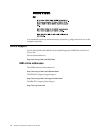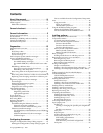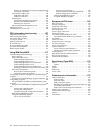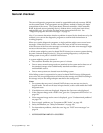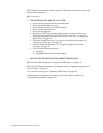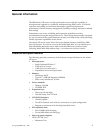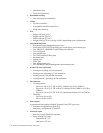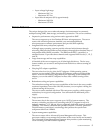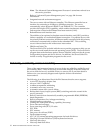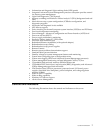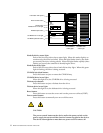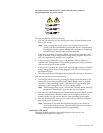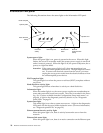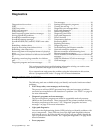
6 Hardware Maintenance Manual: xSeries 250
Note: The Advanced System Management Processor is sometimes referred to as
the service processor.
Refer to “Advanced System Management ports” on page 104 for more
information.
• Integrated network environment support
The server comes with an Ethernet controller. This Ethernet controller has an
interface for connecting to 10-Mbps or 100-Mbps networks. The server
automatically selects between 10BASE-T and 100BASE-TX. The controller
provides full-duplex (FDX) capability, which enables simultaneous transmission
and reception of data on the Ethernet local area network (LAN).
• Redundant network-interface card
The addition of an optional, redundant network interface card (NIC) provides a
failover capability to a redundant Ethernet connection. If a problem occurs with
the primary Ethernet connection, all Ethernet traffic associated with this primary
connection is automatically switched to the redundant NIC. This switching
occurs without data loss and without user intervention.
• IBM ServerGuide CDs
The ServerGuide CDs included with the server provide programs to help you set
up the server and install the network operating system (NOS). The ServerGuide
program detects the hardware options that are installed, and provides the correct
configuration program and device drivers. In addition, the ServerGuide CDs
include a variety of application programs for the server.
Reliability, availability, and serviceability
Three of the most important features in server design are reliability, availability, and
serviceability (RAS). These factors help to ensure the integrity of the data stored on
the server; that the server is available when you want to use it; and that should a
failure occur, you can easily diagnose and repair the failure with minimal
inconvenience.
The following is an abbreviated list of the RAS features that the server supports.
• Active PCI (hot-plug) adapter slots
• Alert on LAN™ capability
• Ambient temperature monitoring
• Automatic error retry/recovery
• Automatic restart after a power failure
• Backup basic input/output system (BIOS) switching under the control of the
service processor
• Built-in, menu-driven electronically erasable programmable ROM (EEPROM)
based diagnostics
• Built-in temperature/fan/voltages monitoring
• Chipkill memory protection
• Cooling fans with speed-sensing capability (hot-swap)
• Error codes and messages
• Error correcting code (ECC) L2 cache
•ECC FSBs
•ECC memory
• Fast power-on self-test (POST)
• Fault-resistant startup
•45°C (113° F) normal operating temperature for hard disk drives
• Hot-plug Universal Serial bus (USB) keyboard and mouse
• Hot-swap drive bays
• Hot-swap hard disk drives



